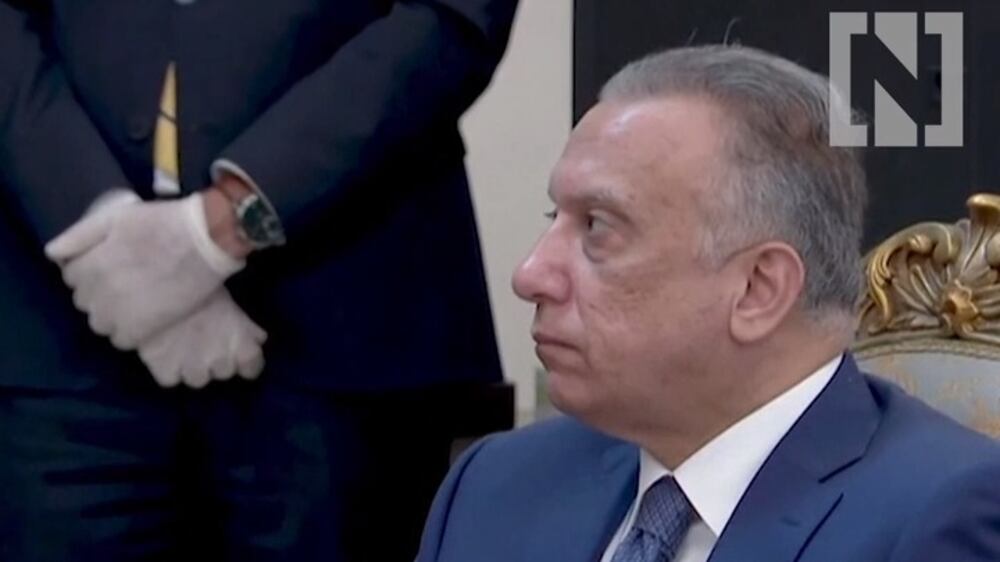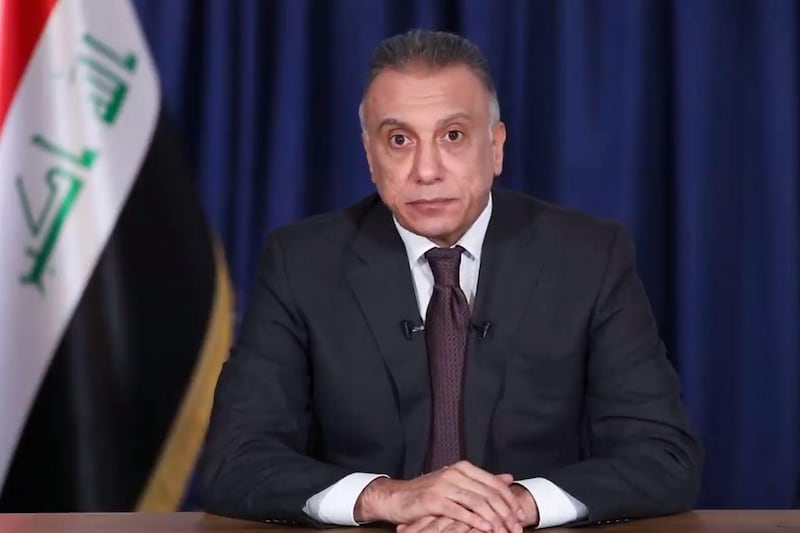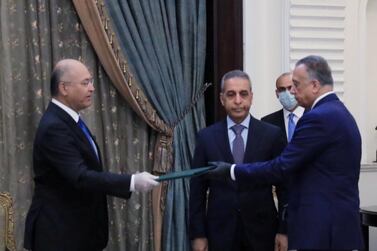Iraq’s new Prime Minister designate Mustafa Al Kadhimi has vowed to form a government that “serves” public interest.
“I will present a new cabinet to the parliament very soon, it will be a government that serves the public, a government of services,” Mr Al Kadhimi said in his first televised public address.
The Iraqi official insisted that his cabinet will be equipped with competent ministers who “will put the public’s interest first”.
He pledged to have balanced ties with regional and international actors.
“Iraqi sovereignty is a red line,” he said, adding that it is not a matter for debate.
“Iraq’s decisions will be made by Iraqis,” he said.
President Barham Salih named Mr Al Kadhimi as prime minister designate on Thursday, making him the third nominee to lead Iraq in just 10 weeks.
Mustafa Al Kadhimi is Iraq's new prime minister-designate

The country’s political factions have struggled to agree on a replacement for a new government since outgoing Prime Minister Adel Abdul Mahdi resigned last November.
“I will work tirelessly to present Iraqis with a program and cabinet that will work to serve them, protect their rights and take Iraq towards a prosperous future,” Mr Al Kadhimi said.
He was nominated hours after Adnan Al Zurfi withdrew his candidacy.
Mr Zurfi cited “internal and external reasons” for the move after facing opposition from the ruling Shiite factions that are linked to Iran.
The president said that Mr Kadhimi is a “fighter and intellectual who is well known for his integrity, moderation and keenness [to honour] the rights of the Iraqi people".
He warned that the prime minister designate has a "big responsibility, and a difficult task”, that includes conducting fair and transparent parliamentary elections and balancing relations between Iran and the US.
Since the 2003 US-led invasion, Iraq has been caught in a battle of influence between Washington and Tehran.
For years the country has been the staging ground for tit-for-tat strikes between the two states.
Mr Al Kadhimi assured the public that Iraq will not be dragged into the tensions between the two.
"Iraq must have successful foreign relations based on protecting sovereignty, mutual respect, and cooperation with neighbours and friends," he said.
David Schenker, the US assistant secretary of Near Eastern Affairs, welcomed the news about Mr Al Kadhimi’s nomination.
“If Kadhimi is an Iraqi nationalist, dedicated to pursuing a sovereign Iraq, if he is committed to fighting corruption, this would be great for Iraq, and we think it would be great for our bilateral relationship,” Mr Schenker told reporters during a teleconference.
The US official warned that Iranian-backed militia pose a “significant” threat to American forces stationed in Iraq.
His comments come about a week after US President Donald Trump warned of an attack by Iran or its proxies.
Mr Schenker did not give details about the attack but said “it continues to be significant”.
Iran-backed paramilitary groups that operate in Iraq have regularly been shelling bases hosting US forces, and the area around the American embassy in Baghdad.
An American drone strike in Iraq that killed Qassem Suleimani, the head of Iran’s elite Quds Force in early January deepened tensions between the two.
It also killed Abu Mahdi Al Muhandis, who founded Iraq’s Kataib Hezbollah militia after the 2003 US-led invasion.







